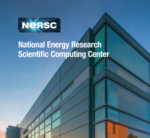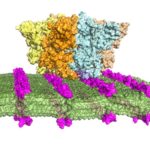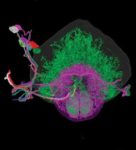Last November, the National Energy Research Scientific Computing Center (NERSC) at Lawrence Berkeley National Laboratory launched its QIS@Perlmutter program to provide researchers working on quantum information science (QIS) problems with supercomputing resources, while also exploring how QIS could benefit high-performance computing (HPC). NERSC is a U.S. Department of Energy (DOE) computing facility that provides supercomputing and other scientific computing resources to thousands of researchers each year. Among these researchers, QIS experts from government, industry, and academia are interested in using supercomputers at NERSC and other HPC centers to advance quantum technologies and study untapped questions in quantum-driven sciences such as materials, chemistry, and physics.
@HPCpodcast: UC Berkeley’s and LBNL’s Kathy Yelick on Exascale, the Future of Supercomputing, Partitioned Global Address Space and Diversity in HPC
Today, on the eve of Exascale Day, the @HPCpodcast is delighted to have Kathy Yelick as our special guest to observe Oct. 18 (1018 – a billion billion calculations per second). Dr. Yelick is the Robert S. Pepper Distinguished Professor of Electrical Engineering and Computer Sciences and the Vice Chancellor for Research at UC Berkeley, and Senior Faculty Scientist at Lawrence Berkeley National Laboratory.
Linux Foundation Hosts Project for Container Collaboration Between Enterprise and HPC
SAN FRANCISCO, Nov. 30, 2021 — The Linux Foundation has announced it will host the Apptainer project (formerly the Singularity project) — Apptainer being a widely used container system for high-performance computing (HPC) and one of the container systems suited for both enterprise and HPC use cases. It is designed to execute applications at bare-metal performance […]
NERSC, ALCF, Codeplay Partner on SYCL GPU Compiler
The National Energy Research Scientific Computing Center (NERSC) at Lawrence Berkeley National Laboratory (LBNL) and Argonne Leadership Computing Facility (ALCF) are working with Codeplay Software to enhance the LLVM SYCL GPU compiler capabilities for Nvidia A100 GPUs. The collaboration is designed to help NERSC and ALCF users, along with the HPC community in general, produce […]
Katie Antypas Named Director of Hardware & Integration at Exascale Computing Project
The Exascale Computing Project has selected Berkeley Lab’s Katie Antypas as its new Director for the project’s Hardware & Integration Focus Area. “Katie has more than 14 years of experience at Berkeley Lab and is a widely recognized speaker and presenter throughout the HPC community. We are thrilled to have her take on such a critical function of leading this group and ensuring the project’s success in interfacing with the DOE HPC facilities.”
NERSC Finalizes Contract for Perlmutter Supercomputer
NERSC has moved another step closer to making Perlmutter — its next-generation GPU-accelerated supercomputer — available to the science community in 2020. In mid-April, NERSC finalized its contract with Cray — which was acquired by Hewlett Packard Enterprise (HPE) in September 2019 — for the new system, a Cray Shasta supercomputer that will feature 24 […]
Video: Why Supercomputers Are A Vital Tool In The Fight Against COVID-19
In this video from Forbes, Horst Simon from LBNL describes how supercomputers are being used for coronavirus research. “Computing is stepping up to the fight in other ways too. Some researchers are crowdsourcing computing power to try to better understand the dynamics of the protein and a dataset of 29,000 research papers has been made available to researchers leveraging artificial intelligence and other approaches to help tackle the virus. IBM has launched a global coding challenge that includes a focus on COVID-19 and Amazon has said it will invest $20 million to help speed up coronavirus testing.”
Dan Martin from Berkeley Lab takes on new role at Exascale Computing Project
The DOE Exascale Computing Project (ECP) has named Dan Martin, a computational scientist and group lead for the Applied Numerical Algorithms Group in Berkeley Lab’s Computational Research Division, as team lead for their Earth and Space Science portfolio within ECP Application Development focus area. Martin replaces Anshu Dubey, a computer scientist at Argonne National Laboratory. “I am confident that Dan’s technical expertise and deep experience with the codes that are relevant to the ECP portfolio make him a good fit to replace me at ECP. Not only is he highly respected for his work, but his management style will mesh very well with the leadership team,” said Dubey of Martin’s appointment.
New Library of Artificial Antibodies Could Target Pathogens With Molecular Precision
A research team led by Berkeley Lab has developed a technique that could accelerate the design of artificial antibodies for biomedical applications – from sensing technologies that detect and neutralize infectious viruses and bacteria to the early detection of Alzheimer’s. “We can now readily build populations of rugged synthetic materials that can be engineered to recognize a potential pathogen,” said Zuckermann. “It is a shining example of biomimetic nanoscience.”
Visualizing an Entire Brain at Nanoscale Resolution
In this video from SC19, Berkeley researchers visualizes an entire brain at nanoscale resolution. The work was published in the journal, Science. “At the core of the work is the combination of expansion microscopy and lattice light-sheet microscopy (ExLLSM) to capture large super-resolution image volumes of neural circuits using high-speed, nano-scale molecular microscopy.”












